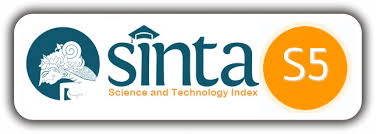Perkembangan Anak Pra Sekolah Pada PAUD Reguler
Development of Pre-School Children in Regular Early Childhood Education
DOI:
https://doi.org/10.55642/phasij.v2i01.134Kata Kunci:
Husband's Support, Role of Cadre, Affordability, ANC regularityAbstrak
Growth and development in children can be seen from several aspects, namely cognitive aspects, physical (motor) development aspects, language and communication development aspects, personal, social and emotional aspects. This study aims to describe the development of pre-school age children in Regular PAUD and analyze the factors that influence their development. This research is observational research. The variables in this study were fine motor development, gross motor development, personal social development, language development, age factor, parental education level, child's gender and weight. The research population was all PAUD children in the Surakarta City Region with a total sample of 97 children. The research instrument in this study was the DDST Sheet and a checklist for the identity of the respondents. The data analysis used was the frequency distribution test, the chi-square test and the Fishers exact test. The results of the identification of child development mostly have fine motor development, gross motor development, language development and normal social personal development. Factors that influence the development of normal children are mostly aothotarian parenting patterns, Z score of normal children and education level of parents in SMA/SMK. Gender has no relationship in the formation of development, while the z-score, parenting pattern and level of education have a relationship in the formation of fine motor development, gross motor development, language development and personal social development. It is recommended for each PAUD to detect growth and development every 6 months.
















